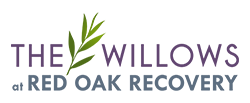Millions of people have co-occurring disorders in the United States. Of those individuals, women are disproportionately affected. Research suggests that dual diagnosis is more common among young women. So what is the most common dual diagnosis for women?
The Willows at Red Oak Recovery® provides gender-specific treatment for substance abuse and addiction as well as other mental health issues such as anxiety, depression, and bipolar disorder. Our caring team of professionals understands that dual diagnosis can be complex and difficult to manage without proper support and guidance. We provide our clients with an individualized treatment plan tailored to their unique needs. It includes evidence-based therapies such as cognitive behavioral therapy (CBT) and dialectical behavior therapy (DBT), along with holistic modalities like yoga and art therapy. To learn more about dual diagnosis treatment, contact us at 855.773.0614 today. Our dual diagnosis treatment for women focuses on helping clients develop the skills and strategies they need to manage both their mental health issues and addiction while providing a safe and supportive environment.
What Is Dual Diagnosis?
Dual diagnosis is two simultaneous mental health diagnoses—one related to substance abuse or addiction while the other is typically a mood disorder such as depression or anxiety. It’s important to note that many individuals suffering from a dual diagnosis may also experience symptoms of:
- Post-traumatic stress disorder (PTSD)
- Obsessive-compulsive disorder (OCD)
- Eating disorders
- Personality disorders
- Trauma-related issues
Women who suffer from a dual diagnosis often experience unique challenges due to biological differences between genders, social stigma towards women who struggle with addiction and mental health issues, or even a lack of access to quality care due to financial concerns or limited resources in their area. That’s why it’s crucial for these individuals to seek specialized care for their condition to receive comprehensive treatment for both diagnoses simultaneously.
Most Common Dual Diagnosis For Women
So what is the most common dual diagnosis among women? The answer varies depending on age range, but depression is the most commonly diagnosed co-occurring disorder amongst women ages 12-17.
This is because:
- Hormonal changes during puberty or adolescence often trigger depression
- Depression can lead to self-destructive behaviors like substance abuse
- Depression can be difficult to diagnose due to the lack of understanding and stigma surrounding mental health issues in women
Anxiety is more common among young women because:
- Anxiety can be the result of stress in a woman’s life, such as parenting or career responsibilities
- Women may struggle to cope with anxiety which can lead to substance use
- Women often experience anxiety due to trauma or a history of abuse
Other frequent diagnoses include bipolar disorder and post-traumatic stress disorder (PTSD). These are likely common because :
- Women are often more likely to experience trauma
- Bipolar disorder is often misunderstood and can be difficult to diagnose correctly
- PTSD can lead to substance abuse and addiction as a coping mechanism
It’s worth noting that there tends to be an overlap between substance use disorders and certain personality traits, such as impulsivity or sensation-seeking behaviors which can complicate treatment plans further if not appropriately addressed during recovery.
Discover Dual Diagnosis Treatment at The Willows at Red Oak Recovery®
It can be for young women suffering from a dual diagnosis—especially when they don’t have access to specialized care like ours here in Asheville, NC. That’s why we take pride in offering our clients compassionate yet comprehensive care for both substance use disorders and co-occurring mental health conditions through evidence-based practices like CBT and DBT, along with holistic modalities like yoga therapy and art therapy. If you know someone struggling with a dual diagnosis, we urge them to reach out for help today at 855.773.0614. Our co-occurring disorder treatment for young women can help them simultaneously manage their mental health issues and addiction in a safe, supportive environment. Contact us today to learn more about our programs.

